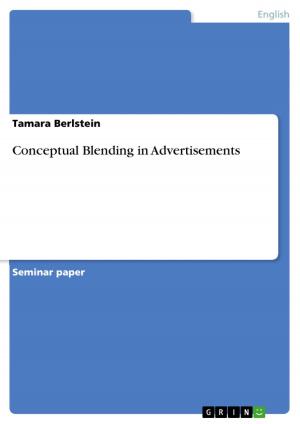The British Empire and its colonial legacy
Nonfiction, Reference & Language, Study Aids, ESL, Foreign Languages| Author: | Jan Dreyer | ISBN: | 9783638005166 |
| Publisher: | GRIN Publishing | Publication: | February 19, 2008 |
| Imprint: | GRIN Publishing | Language: | English |
| Author: | Jan Dreyer |
| ISBN: | 9783638005166 |
| Publisher: | GRIN Publishing |
| Publication: | February 19, 2008 |
| Imprint: | GRIN Publishing |
| Language: | English |
Seminar paper from the year 2007 in the subject English - Applied Geography, grade: 1,3, Dresden Technical University (Institut für Anglistik und Amerikanistik), course: Watching the English, 27 entries in the bibliography, language: English, abstract: At its height in the late 19th and early 20th century, the British empire included territories on all continents and comprised about one quarter of the world's population and area. The way England became a world power is one of the biggest success stories in world history. The British Empire was the biggest empire ever, bar none. How an archipelago of rainy islands off the northwest coast of Europe came to rule the world is one of the fundamental questions not just of British but of world history. How did Britain manage to overcome the imperial giants of the 16th and 17th century, namely Portugal and Spain, establishing their own colonies and dependencies all over the world within the following three centuries? What were the ideas and intentions behind colonizing and conquering the world? Furthermore, it is interesting to find out what caused the dismantling of the Empire in the second half of the 20th century within just three decades, after three centuries of ruling vast parts of the globe. Finally, it will be astonishing to find out, what the British Empire has left behind for the modern world. At first, one might think of team sports like soccer, cricket or rugby, which were indeed brought to all parts of the globe by the Empire. Nevertheless, the colonial legacy of the British Empire is not only confined to sports. It can be found in many fields of life like economy, politics, architecture and food. Nor is it always a good legacy. The British Empire was also responsible for various present-day conflicts and it will be found out, how those conflicts came into being and what they are like.
Seminar paper from the year 2007 in the subject English - Applied Geography, grade: 1,3, Dresden Technical University (Institut für Anglistik und Amerikanistik), course: Watching the English, 27 entries in the bibliography, language: English, abstract: At its height in the late 19th and early 20th century, the British empire included territories on all continents and comprised about one quarter of the world's population and area. The way England became a world power is one of the biggest success stories in world history. The British Empire was the biggest empire ever, bar none. How an archipelago of rainy islands off the northwest coast of Europe came to rule the world is one of the fundamental questions not just of British but of world history. How did Britain manage to overcome the imperial giants of the 16th and 17th century, namely Portugal and Spain, establishing their own colonies and dependencies all over the world within the following three centuries? What were the ideas and intentions behind colonizing and conquering the world? Furthermore, it is interesting to find out what caused the dismantling of the Empire in the second half of the 20th century within just three decades, after three centuries of ruling vast parts of the globe. Finally, it will be astonishing to find out, what the British Empire has left behind for the modern world. At first, one might think of team sports like soccer, cricket or rugby, which were indeed brought to all parts of the globe by the Empire. Nevertheless, the colonial legacy of the British Empire is not only confined to sports. It can be found in many fields of life like economy, politics, architecture and food. Nor is it always a good legacy. The British Empire was also responsible for various present-day conflicts and it will be found out, how those conflicts came into being and what they are like.















